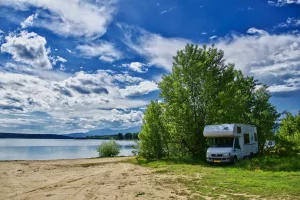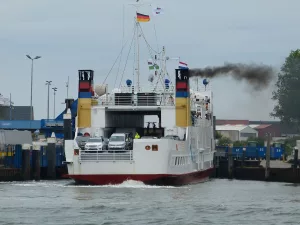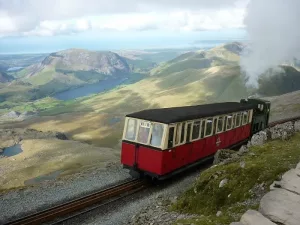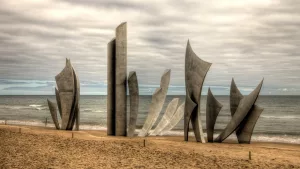Rules for Driving in France
Are you planning on driving in France?
In our French Driving Essentials article we cover everything you need to know about driving your motorhome or campervan in France. We cover the speed limits, the drink driving laws, low emissions zones and more.
This handy French travel guide will give you all the practical and essential information that you need to know before you go!
Go to our ‘French Travel Hub’ to understand everything about France, from wild camping rules, what you need to have in place to take your pet and even what mobile sim card to use.
Driving In France - Jump To...
Driving in France - The Basic Rules
These are the basic driving rules that you need to know when you are driving in France:
- Drive on the right and overtake on the left.
- Give way to the right.
- Compulsory seatbelts for all in the vehicle.
- Headlights always dipped for motorway driving – even in the daytime.
- A-frames not legal for towing in France .
- Crash Helmets compulsory if you take a scooter/moped to ride.
- Drink/Drive limits are lower than the UK (50mg per 100ml, or 20mg per 100ml if you are under 25. UK is 80mg)
French Road Speed Limits in a motorhome
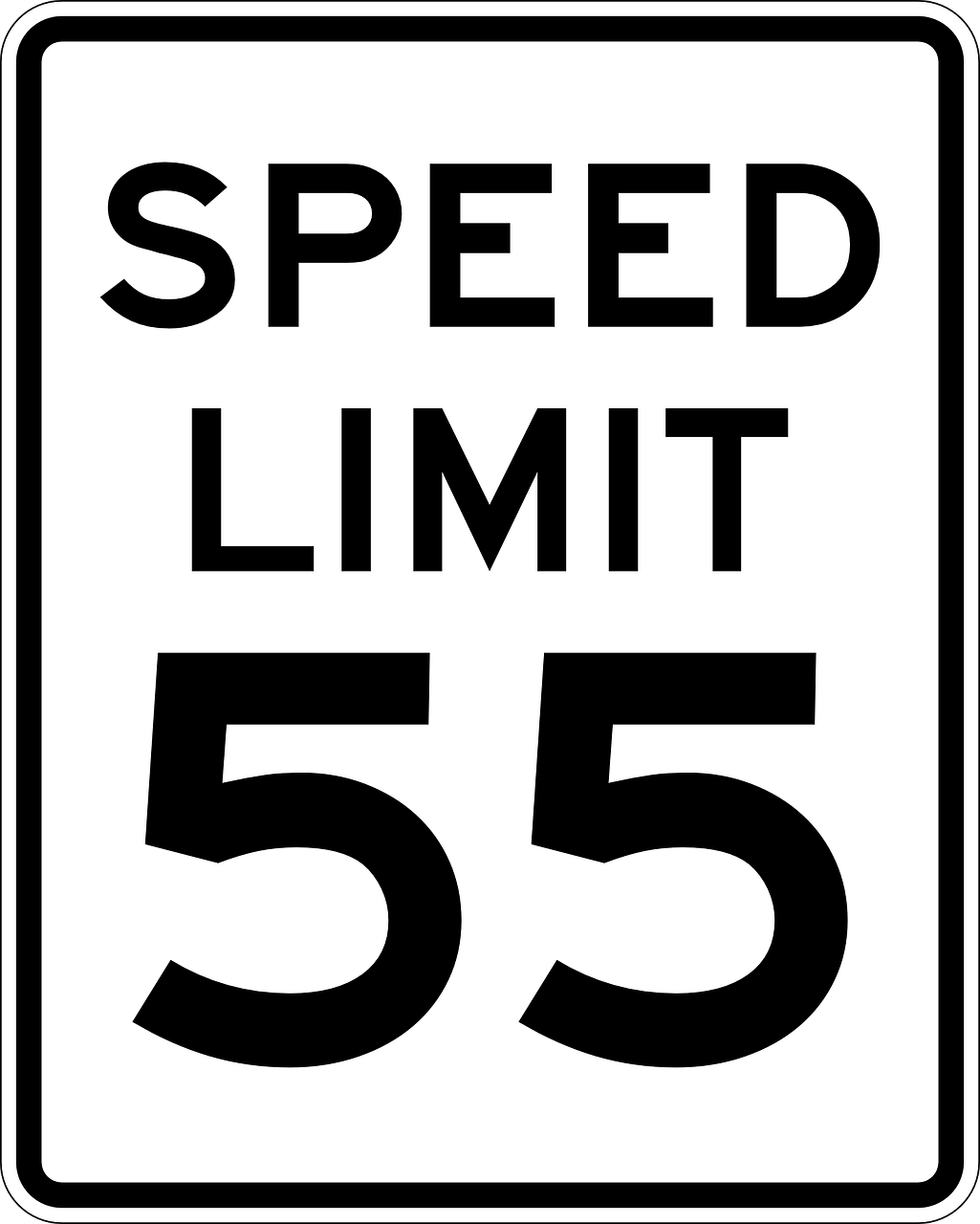
The driving speed for your motorhome under 3.5 tonnes are:
- Urban – 50km/h (30 mph)
- Minor roads – 80km/h (50mph)
- Major roads – 110km/h (68mph)
- Motorways – 130km/h (80mph)
The driving speed for your motorhome over 3.5 tonnes are:
- Urban – 50km/h (30mph)
- Minor Roads – 80km/h (50mph)
- Major roads – 100km/h (62mph)
- Motorways – 110km/h (68mph)
Essential Driving Requirements for France
The following items are those which are either legally required (M) or advised (A) when you are driving in France:
- Current passport (M)
- Valid UK Drivers Licence (M)
- Proof of Insurance (M)
- Registration documents for the motorhome or camper (M)
- Reflective vest (for each person in the motorhome) – and accessible from within the vehicle. (M)
- Warning triangle in case of breakdown or accident (M)
- UK number plate sticker (post Brexit rule) (M)
- Headlight beam converters (already fitted to the motorhome) (M)
- First Aid Kit (M)
- Reflective metal backed board to fix to bikes on the back (A)
- Spare bulbs and fuse box (A)
- Fire Extinguisher (A)
- Snow Tyres/Chains/Socks (M in winter – see ‘Driving in France’)
- Blind Spot Warning Stickers (M for over 3.5 tonnes)
- Crit’Air (M – if driving into some of the bigger cities with a ULEZ type zone)
It should be noted that a breathalyser kit is no longer needed when you are driving in France.
Drink Driving Laws whilst driving in France
In France, the drink-driving rules apply to all drivers, including those driving motorhomes. The legal blood alcohol content (BAC) limit is lower than in some other countries: it’s 0.5 grams per litre of blood (0.05%), compared to 0.8 grams (0.08%) in the UK. For professional drivers the limit is even lower at 0.2 grams (0.02%).
The fines and penalties are hefty for being over these limits – and if over 80mg per 100ml the fine is 4,500 euros, 6 points, three year ban and possible prison sentence. Be mindful on those wine routes..
Winter Driving in France
In France, winter driving regulations focus on ensuring safety during adverse weather conditions. From November 1st to March 31st, it’s mandatory in certain mountainous regions to equip vehicles with winter tires or have snow chains readily available in the vehicle. This requirement applies to both locals and visitors driving through these areas.
The specific regions where these rules are enforced are typically the French Alps, Pyrenees, Massif Central, and other mountainous areas prone to snow and ice. Additionally, drivers are advised to carry de-icing equipment and to ensure their vehicle is prepared for cold weather, including checking antifreeze levels and battery condition.
Visibility is crucial, so keeping headlights clean and functional is important, and drivers should be ready for sudden changes in weather by having warm clothing, food, and water in the vehicle. Adhering to these rules and being prepared can significantly enhance safety when navigating France’s winter roads.
Speeding and Police Checks in France
France has a comprehensive network of speed cameras and also conducts mobile speed checks. Penalties for speeding can be severe, including fines, points on your licence, and even vehicle confiscation in extreme cases.
For non-residents, fines must be paid on the spot, and police have the authority to levy fines or impound vehicles if necessary.
Low Emission Zones in France
Low Emission Zones (LEZs), known in France as “Zones à Faibles Émissions” (ZFEs), are areas where access for certain vehicles is restricted based on their emissions standards. The cities and areas with LEZs have been expanding, a bit like London, but here are some of the key locations in France that have implemented an LEZs:
- Paris: Paris has one of the most well-known LEZs, which covers the city and some surrounding suburbs.
- Lyon: Includes parts of Lyon and Villeurbanne.
- Grenoble: Covers Grenoble and 27 surrounding municipalities.
- Lille: The LEZ includes Lille and several neighboring towns.
- Strasbourg: Implemented an LEZ that affects vehicles entering the city.
- Marseille: Planning to implement an LEZ that will restrict the most polluting vehicles.
- Toulouse: Announced plans for an LEZ to limit vehicle emissions in the city.
- Montpellier: Also planning to implement an LEZ.
These zones typically restrict access based on the Crit’Air vignette (see essential driving requirements). Vehicles with higher pollution levels (or older vehicles that do not qualify for a sticker) may be restricted or banned from entering these zones during certain times.
The rules and restrictions can vary significantly from one LEZ to another, including the types of vehicles affected, the times of day when restrictions apply, and the specific emissions standards required for entry. It’s important for you, as the motorhome owner, to check the specific requirements of each LEZ in advance. We have given you this key information to help, but LEZ zones change rules all the time, so please validate once you have your rough route planned out.
Driving and Wild Camping In France
In recent years, there has been an increasing emphasis on regulating wild camping in France, particularly to protect environmentally sensitive areas and accommodate the growing popularity of motorhome travel. Therefore, while exploring the beautiful landscapes and regions of France, it’s crucial to be mindful of local regulations and to prioritise sustainability and respect for the environment.
Typically wild camping in a motorhome in France is generally regulated at the local level, meaning the rules can vary significantly from one area to another. However, there are some general principles and guidelines that apply across the country:
Prohibition in Certain Areas: Wild camping is often prohibited in national parks, natural reserves, and on beaches. It’s also usually banned near historical sites or in protected areas.
Private Land: Camping on private land is only allowed with the landowner’s permission. Without this permission, you’re trespassing.
Public Spaces: Even if not explicitly prohibited, using public spaces like parking lots or roadside areas for overnight stays can be subject to local authority discretion. Enforcement can vary, with some areas being more tolerant than others.
Aires de Service: France has a network of “aires de service” designed for motorhomes. These areas provide spaces for overnight parking, and often include facilities for water, waste disposal, and sometimes electricity. They range from free basic facilities to more equipped sites charging a fee.
Driving Phrases for Your French Road Trip
Google Translate has to be the ‘Go To’ app for dealing with any language barriers when travelling in France. Its such a good app to have on your mobile, especially with the camera option to translate for you. However, sometimes it is easy to have some useful phrases to hand, so these are our useful French driving phrases:
- My motorhome has broken down: Mon camping-car est en panne
- Where is the nearest petrol station please?: Où est la station-service la plus proche, s’il vous plaît?
- Can you help me please? Pouvez-vous m’aider, s’il vous plaît?
- I am lost: Je suis perdu (Male) or Je suis perdue (female)
We hope you enjoyed this article and found it useful. If you found it useful, please do share with others using the share buttons below. If you think we have missed something – please do let us know. We read all our emails!


